- Home
- Michael McBride
Ancient Enemy
Ancient Enemy Read online
ANCIENT ENEMY
Michael McBride
First Edition
Ancient Enemy © 2014 by Michael McBride
All Rights Reserved.
A DarkFuse Release
www.darkfuse.com
Join the Newsletter:
http://eepurl.com/jOH5
Become a fan on Facebook:
www.facebook.com/darkfuse
Follow us on Twitter:
www.twitter.com/darkfuse
This book is a work of fiction. Names, characters, places and incidents are either a product of the author’s imagination or are used fictitiously. Any resemblance to actual events, locales or persons, living or dead, is entirely coincidental.
CONNECT WITH US
Find out why DarkFuse is the premier publisher of dark fiction.
Join our newsletter and get free eBooks:
http://eepurl.com/jOH5
Follow us on Twitter:
http://twitter.com/darkfuse
Like us on Facebook:
http://www.facebook.com/darkfuse/
OTHER BOOKS BY AUTHOR
F9
Innocents Lost
The Infected
Check out the author’s official page at DarkFuse for a complete list:
http://www.darkfuseshop.com/Michael-McBride/
Dedicated to the memory of my grandfather,
Clifford Gauthier
Acknowledgements
Special thanks to Shane Staley, Greg Gifune, Dave Thomas, and Zach McCain at DarkFuse; Shelley Milligan; all of the dedicated DarkFuse faithful; my amazing family; and to all of my readers, without whom this book would not exist.
An Excerpt From:
“Riddles of the Anasazi”
By David Roberts
Smithsonian Magazine, July 2003
For most of the long span of time the Anasazi occupied the region now known as the Four Corners, they lived in the open or in easily accessible sites within canyons. But about 1250, many of the people began constructing settlements high in the cliffs—settlements that offered defense and protection. These villages, well preserved by the dry climate and by stone overhangs, led the Anglo explorers who found them in the 1880s to name the absent builders the Cliff Dwellers.
Toward the end of the 13th century, some cataclysmic event forced the Anasazi to flee those cliff houses and their homeland and to move south and east toward the Rio Grande and the Little Colorado River. Just what happened has been the greatest puzzle facing archaeologists who study the ancient culture. Today’s Pueblo Indians have oral histories about their peoples’ migration, but the details of these stories remain closely guarded secrets. Within the past decade, however, archaeologists have wrung from the pristine ruins new understandings about why the Anasazi left, and the picture that emerges is dark. It includes violence and warfare—even cannibalism—among the Anasazi themselves. “After about A.D. 1200, something very unpleasant happens,” says University of Colorado archaeologist Stephen Lekson. “The wheels come off.”
MANCOS CANYON
MONTEZUMA COUNTY
15 MILES SOUTH-SOUTHEAST
OF CORTEZ, COLORADO
NOVEMBER 8TH
ONE
My blood has flowed through this valley for more than seven hundred years, a blink of an eye to the frigid river through which I splashed on my pinto mare, Yanaba. It was her restless whinnying from the stable that awakened me and alerted me to the fact that something was wrong. It was the silence, as though the night itself were holding its breath. There was no rustling of the tall, dead grasses or rattling of the skeletal branches of the aspens and willows or yipping of coyotes in the distance. More importantly, no monotonous, drowsy baaing of the sheep bedding down in the field across the river.
Nothing at all.
Until the horrible bleating commenced.
Shrill cries I never imagined them capable of making. Their pain was palpable, so much so that my cheeks were wet with tears before we were even halfway there. By the time we burst from the dense willows lining the far side of the Mancos River, the bleating had ceased.
The resultant silence was a thousand times worse.
Yanaba pulled up short of the pasture. Huffed a frozen cloud of breath. Shook her head. Stomped her front hooves. Swung her flank around.
I leaned forward. Stroked the side of her neck. Whispered into her ear.
“Luh, shik’is.” It’s all right, my friend. “I won’t let anything hurt you.”
She huffed again, but held still long enough for me to hop down. I clapped her on the haunches and stepped out into the field. The wild grasses were gold and brown and crunched like straw beneath my feet. The moon outlined the shape of the butte towering over me and the ridgeline rising from the desert to meet it, its back spiked with junipers and pines. And the unmoving forms dotting the pasture between us.
I grabbed a stick from the ground. Solid. Heavy. Raised it like a baseball bat as I advanced.
Yanaba whinnied and reared up. Stomped her hooves again. Beyond her, the river chuckled past through the trees.
I tried to offer a reassuring gesture, but for the life of me couldn’t bring myself to free a hand from the wooden club. Not now that I’d caught wind of a scent I knew all too well. It was more of a sensation than a smell, really. A coppery taste trickling down the back of my throat. An uncomfortable tingle in my stomach. A warmth in my mouth that made me want to spit. Not quite the scent of the first pulsing rush of blood that erupts from an animal’s neck after the knife severs its arteries, but more like the way the ground smells after you’ve killed several and the dirt has turned to mud and cradles brick-red puddles.
The nearest sheep was on her side, her wool already starting to frost, her teeth bared. Her pelt had been torn away from her abdomen and the contents ripped out and spread around her. I had no idea what amount of her had been consumed, only that the blood was still fresh enough to glisten and the majority of the meat had been left behind. Whatever attacked her had torn her up in the process.
I walked over to the next one. And then to another still. They’d been slaughtered. Three of them. Ripped apart with a savagery I’d never seen before and hoped never to see again. This wasn’t the work of animals. At least not the kind that stalked these canyons.
Grandfather would likely have called it the work of tchin’dih. Evil spirits.
As I stared upon the carnage, I could think of no better explanation. Whatever had attacked our sheep did so with such speed that it overcame them before they could reach the tree line and butchered them in less time than it took me to get here.
And I couldn’t think of anything that was capable of doing that.
TWO
I dragged the last of the dead sheep over to the back of our old Chevy pickup and hauled her up onto the tailgate. It took a little finagling, but I managed to shove her far enough into the bed to close it again. I was covered from head to toe with sheep blood. It constricted my skin and clotted into the hairs on my arms. I’d even gotten some in my mouth. Not that this was the first time or anything. I’d done the majority of the slaughtering since I turned sixteen, so I didn’t really mind the taste. Ordinarily. There was something about this blood, though, that somehow felt…I don’t know…wrong. Or maybe it was just because I didn’t feel as though there were enough of it here. Having to pretty much shove everything back into the holes it had spilled out of so I could move the carcasses made me realize that, as far as I could tell, everything was present and accounted for. Except for maybe a good portion of the blood, but it was impossible to tell how much had soaked into the ground.
It didn’t really matter in the universal design. They were dead and I had more than my share of their blood on me. I looked longingly at the river
through the willows before climbing up into the cab. No point washing it off if I was just going to get myself covered with it again. I’d kill for a drink and some Advil, though. I’d always been sensitive to bright sunlight, which brought on these dull headaches that grew worse as the day went on. Unfortunately, this one looked like it was going to be longer than most.
The bucket seat protested my weight with the crunching sound of broken springs. The old Chevy predated shoulder straps and the buckle of the lap belt had ceased latching long ago. The closing door shook the whole cab and the engine started with a noise that reminded me of a cross between an electric can opener and someone taking a hammer to the hood. It shuddered and crapped a black cloud before bounding off across the rutted pasture.
In an ideal world, I’d be hauling the carcasses to the firepit for incineration rather than back home to be butchered, but this wasn’t an ideal world. We lived off of the measly casino disbursement and the stipend from the federal government, which combined were barely enough to pay for my grandfather’s medications and my mother’s need to anesthetize herself. We couldn’t afford to waste the meat, regardless of the fact that I had absolutely no clue what killed them or what it might have done to them in the process.
It took nearly an hour to wend through the rugged fields to the point where they met with the faded asphalt road that crossed the river. I used the time to think. Last night was the third night in a row we’d lost livestock. I hadn’t heard a thing the first night. I’d simply walked down to the chicken coop the next morning with a bucket of feed to find the ground littered with feathers. The wire was bent and torn away from where whatever had gotten them had dug up the dirt to scurry under. I’d just assumed it was the work of a coyote, and while we could scarcely afford the loss of two hens, there was little I could do outside of just fixing the coop and burying rocks in the hole so it couldn’t dig there again.
The following night, it got one of our dairy goats. There was hardly enough of it left to even contemplate scraping the meat off of the disarticulated bones, so I’d gathered all of the pieces I could find, drove up to the pit, and burned them with the trash. As a precaution I’d turned the earth where it bled out to smother the scent and herded the rest of the goats into the pen where we housed them during the winter and closed them inside their stall before night descended. I’d fallen asleep content in the knowledge that I’d done everything I could to keep them safe and slept fairly well right up until I awoke to Yanaba’s whinnying.
This was harsh land, definitely not for the weak of spirit. The predators that stalked it spent months at a time on the verge of starvation, so when they encountered prey, they attacked with staggering speed and ferocity. Yet rarely did they attack domesticated animals. It was something of a hard-struck truce negotiated through centuries of bloodshed. The largest were the bears, although they rarely strayed this far to the south, and they’d grown soft through a century of living on the fringes of civilization and rummaging through garbage barrels. The mountain lions were by far the most dangerous and feared man so little they hunted during the daylight hours. They’d been known to abscond with dogs and small children who strayed into their range, but rarely did they venture into the inhabited regions. The coyotes, on the other hand, preferred the darkness and went wherever they pleased, but I’d never known them to be this aggressive, especially with livestock and so close to human settlement.
What troubled me most was the nature of the slaughter. The chickens had been fully consumed and the goat had been effectively butchered, but no effort had been made to consume the sheep. Their bodies—even their viscera—had been untouched and left to rot where the animals fell, which was almost unheard of in the natural world. Predators killed because they were hungry and then consumed their prey. The concept of killing for sport was one unique to man, and there was no species around here that ripped its prey apart for no other reason than to listen to it bleat in terror and savor its blood.
And the most frightening thought of all was that when I got home I was going to have to tell my mother what happened.
THREE
A thousand years ago, the Anasazi inhabited this land. Technically, they were called something else, but whatever name they chose for themselves vanished into the annals of time with them. It was the Navajo who called them Anaasází, Ancient Enemy, and since they weren’t around to defend themselves, that was the name that stuck. They were the ones responsible for all of the cliff dwellings around here, the famous pueblos built right into the canyon walls, like Cliff Palace, Balcony House, and Long House, just a couple of miles to the north of here in Mesa Verde National Park. They were long gone when the Ute and Navajo converged upon this area, and a distant, fading memory by the time Mexico ceded the combined lands of both tribes in New Mexico and Southern Colorado to the United States in the Treaty of Guadalupe Hidalgo that ended the Mexican-American War.
The Ute were the first to formally recognize US authority and were recruited to fight against the Navajo, who resisted the outright theft of their tribal land. Navajo prisoners were taken and sold as slaves, many of them women and children. Men on both sides of my family tree were killed, more from starvation than actual battle. It was a war of attrition, and one both sides lost. When the dust settled, the Navajo and Ute tribes found themselves confined to reservations with boundaries that seemed to shrink with each passing year, left to wonder how they had essentially been coerced into doing this to each other when together they could have stood against a common foe and defended what was rightfully theirs.
And all on the blood-red sands once occupied by the most ferocious of warrior tribes, who abruptly abandoned this region sometime during the thirteenth century, leaving behind entire fortified cities nearly impossible to reach without wings, cities that will still be standing long after the tallest of skyscrapers has fallen.
My name is Sani Natonaba. My father insisted I be given a traditional Navajo name, although I had no idea why. My best guess was it was an effort to placate his father, who undoubtedly objected to his son sullying his bloodline with a Ute like my mother. Maybe one day I’d track him down and ask him. Literally translated, it means “The Old One War Leader,” but taken in the context of a tongue no one around here has spoken in at least two generations, it means “Leader of the War Against the Old Ones.” I don’t really know the significance of it, or even if there was any. My best guess is it was my paternal grandfather’s way of making sure every Ute who said it aloud felt the twist of the knife. The older generations clung jealously to their prejudices, as though to release them would be to dishonor their ancestors, who were surely looking down on all of us with pride as it was.
My father left us when I was barely old enough to remember him doing so. Just drove off in the middle of the night with our car and what little money we had. All I really remember were the long days watching my mother sitting on the porch with the phone in her lap and her teary eyes on the long dirt driveway. When the phone finally did ring, it rang all the time and my mother stopped answering it. Even went so far as to unplug it. She started drinking when they turned off the electricity. It wasn’t long after that before her father, my maternal grandfather, picked us up in the very truck I’d used to collect the carcasses of the dead sheep and brought us up here to the Ute Mountain Ute Reservation in Colorado.
Last I knew, my father was somewhere on the Diné Res near Shiprock, dealing cards at one of the casinos. I waffled between wanting to go down there so I could tell him all of the things I’d been building up through the years and not wanting to relinquish the hatred I felt for him, for fear I would find it was the only thing that bound me to him.
Sometimes I think I know how the Anasazi must have felt. There were days when I wanted nothing more than to run as far away as I could get from here. I was surrounded by people who either struggled to keep the old traditions alive or were consigned the hand they’d been dealt and subsisted upon the scraps cast aside from the federal government’s table
. There were times when I could feel the pride and indignation of my ancestry coursing through my veins and wanted to rage against this fate, but there were other times when I simply wished to be like all of the other kids I saw on TV, wearing fancy clothes and driving expensive cars and living in a moment not beholden to the actions taken hundreds of years ago by people they never knew. And then there were times when I just felt tired of fighting a battle lost before I was even born and realized just how easy it would be to cash my government stipend and casino checks and blow it all on a numbing whiskey fugue, like my mother.
Strange the things that go through your head while you’re trying to think about anything other than what’s going on right in front of you.
I flipped over the pelvis, held one of the skinned legs by the severed knee, and brought the hatchet down on it, just beside the spine. Threw the leg into the pile. Switched sides, swung again, and separated the remaining rump from the vertebrae.
The heat of the sun on my bare back as it descended toward the mountains, in contrast to the cold air, gave me goosebumps. The eastern horizon was dark with storm clouds that would take hours to make it this far. All I had left to do was wrap the cuts in paper for freezing and salt the hides for tanning and I could finally pour myself a bath, which had never sounded so good in my entire life.

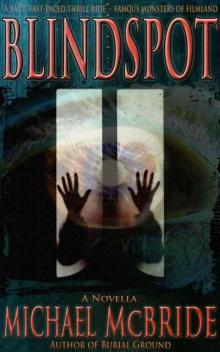 Blindspot
Blindspot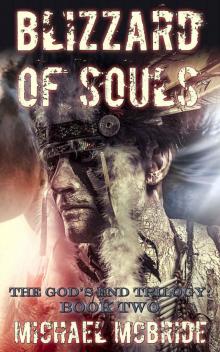 Blizzard of Souls
Blizzard of Souls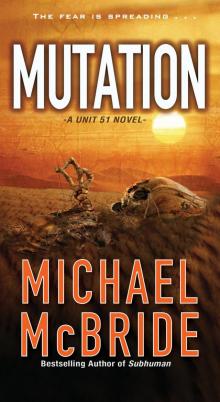 Mutation
Mutation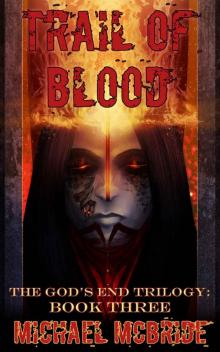 Trail of Blood
Trail of Blood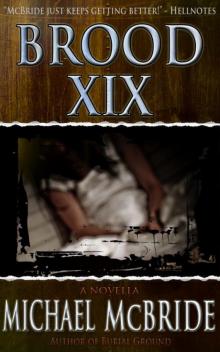 Brood XIX
Brood XIX The Fall
The Fall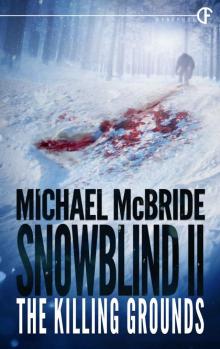 Snowblind II: The Killing Grounds
Snowblind II: The Killing Grounds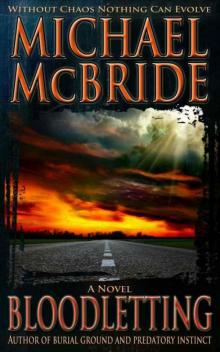 Bloodletting
Bloodletting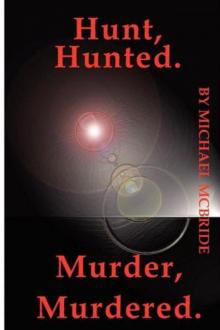 Hunt Hunted, Murder Murdered
Hunt Hunted, Murder Murdered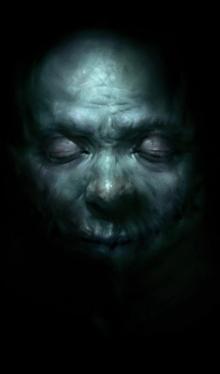 The Bloodspawn
The Bloodspawn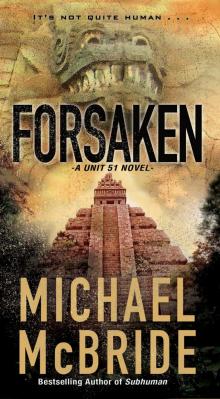 Forsaken
Forsaken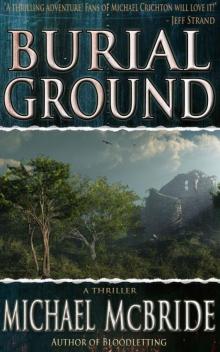 Burial Ground
Burial Ground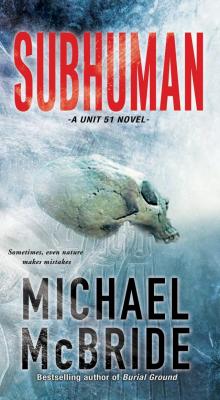 Subhuman
Subhuman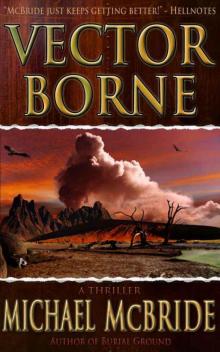 Vector Borne
Vector Borne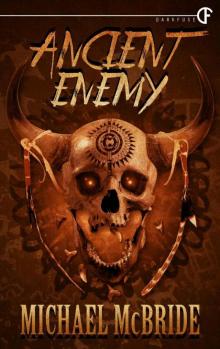 Ancient Enemy
Ancient Enemy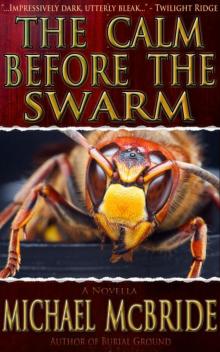 The Calm Before The Swarm
The Calm Before The Swarm Innocents Lost
Innocents Lost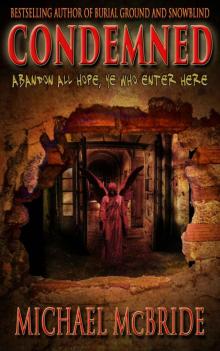 Condemned: A Thriller
Condemned: A Thriller